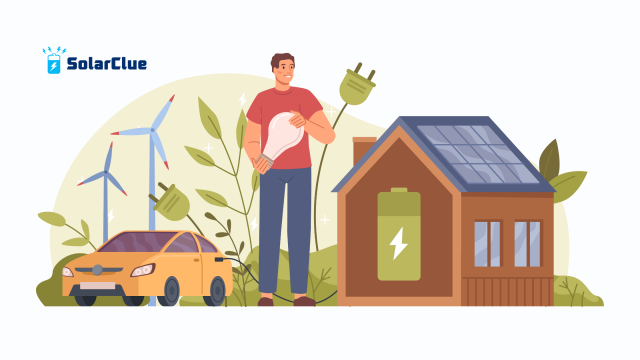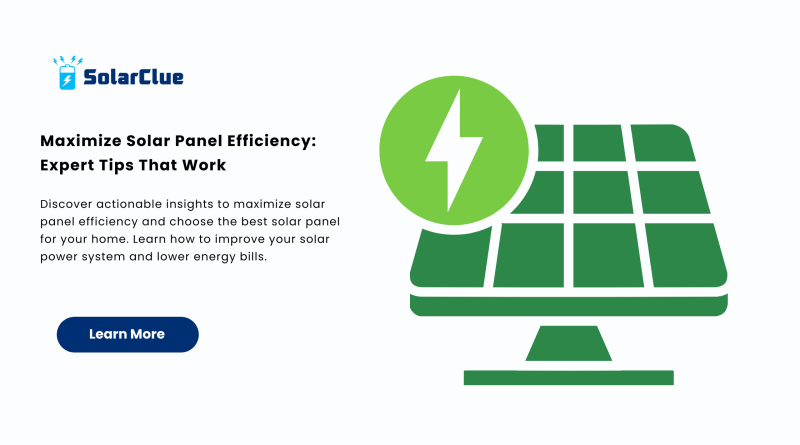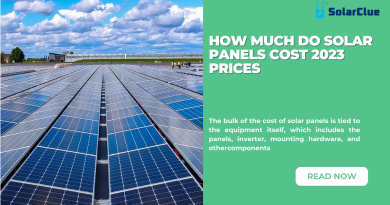Maximize Solar Panel Efficiency: Expert Tips That Work
The rising cost of electricity and increasing awareness of climate change are pushing homeowners and businesses to seek sustainable energy alternatives. Among these, solar energy stands out as the most accessible and reliable option. Installing a solar power system at home is a great first step—but unlocking its full potential requires more than just basic installation. You need to focus on strategies to maximize solar panel efficiency. With the right approach, you can save significantly more money, reduce environmental impact, and enjoy long-term performance from your system.
This comprehensive guide covers everything you need to know about improving the efficiency of your solar panel, including best practices, key influencing factors, and common mistakes to avoid. Whether you’re new to solar or looking to enhance your current setup, this article will equip you with practical, actionable advice to ensure you gain all the solar panel benefits possible.
Table of Contents
- 1 What Is Solar Panel Efficiency?
- 2 Why Solar Panel Efficiency Matters
- 3 Key Factors That Impact Solar Panel Efficiency
- 4 Tips to Maximize Solar Panel Efficiency
- 5 Best Practices for Long-Term Efficiency
- 6 Energy Storage: Boosting Efficiency with Batteries
- 7 Government Incentives and Financial Benefits
- 8 Real-Life Scenario: Maximizing Efficiency in Mumbai
- 9 Choosing the Best Solar Panel for Home Use
- 10 Environmental Benefits of Higher Efficiency
- 11 Common Mistakes to Avoid
- 12 Conclusion
- 13 FAQs
What Is Solar Panel Efficiency?
Solar panel efficiency measures how much sunlight a solar panel can convert into usable electricity. For example, if a panel has an efficiency rating of 20%, it means it converts 20% of the sunlight it absorbs into electric power. The more efficient the panel, the more electricity it produces using the same surface area. That’s why efficiency plays a major role in determining the overall performance of your solar power system.
Why Solar Panel Efficiency Matters
1. Space Optimization: Higher efficiency means fewer panels are needed for the same energy output—ideal for homes with limited roof space.
2. Faster Payback Period: Efficient panels produce more electricity and pay for themselves faster.
3. Greater ROI: You get more value from your investment over the system’s lifetime.
4. Reduced Environmental Impact: By generating more energy, you reduce your dependency on fossil fuels.
Key Factors That Impact Solar Panel Efficiency

1. Type and Quality of Solar Panel
There are three main types of solar panels available today:
-
Monocrystalline Panels: These are the most efficient (18–22%) and considered the best solar panel for residential use due to their high performance and sleek look.
-
Polycrystalline Panels: Less efficient (15–17%) but more budget-friendly. Suitable for larger rooftops where space isn’t a constraint.
-
Thin-Film Panels: Flexible but least efficient (10–13%). Best suited for specific use cases like RVs or shaded roofs.
Choosing the best solar panel involves weighing efficiency, cost, durability, and warranty.
2. Location and Sunlight Exposure
Regions with high solar irradiance naturally offer better panel performance. In India, states like Rajasthan, Gujarat, and Andhra Pradesh receive more sunlight annually, making them ideal for solar installations.
3. Orientation and Tilt Angle
To maximize solar panel efficiency, your system must be positioned to capture the maximum amount of sunlight. In India, this usually means facing south with a tilt angle that matches your location’s latitude.
4. Shading and Obstructions
Even a small amount of shading on a solar panel can drastically reduce its efficiency. Ensure no trees, buildings, or other objects block sunlight during peak hours.
5. Temperature
Though it may seem counterintuitive, very high temperatures can actually reduce solar panel efficiency. Most panels operate best at around 25°C. This is why ventilation and installation spacing are critical.
Tips to Maximize Solar Panel Efficiency
1. Install High-Efficiency Panels
Start by choosing the best solar panel that offers higher conversion rates and comes with certifications like IEC, MNRE, or BIS. While these panels may cost more upfront, they generate more energy and last longer.
2. Clean Panels Regularly
Dirt, dust, leaves, and bird droppings can block sunlight and reduce energy output by up to 20%. Clean your panels every 1–3 months using water and a soft brush or hire professional cleaning services if your panels are hard to reach.
3. Use MPPT Inverters
Maximum Power Point Tracking (MPPT) inverters extract the most electricity possible under varying light conditions. They are significantly more efficient than older PWM (Pulse Width Modulation) inverters.
4. Consider Bifacial Panels
These panels absorb sunlight from both sides and can offer up to 15% more output. Ideal for ground-mounted systems or rooftops with reflective surfaces.
5. Install Solar Trackers
Solar trackers adjust panel orientation throughout the day to follow the sun. This can increase power generation by 25–35%, although it adds to installation costs and maintenance.
6. Avoid Overloading the System
Too many devices connected at once can reduce voltage and impact overall performance. Design your system with appropriate load calculations.
Best Practices for Long-Term Efficiency
-
Schedule annual maintenance checks
-
Update your monitoring software regularly
-
Use smart meters to track real-time performance
-
Replace or upgrade inverters after 8–10 years
-
Ensure all electrical connections remain tight and corrosion-free
Energy Storage: Boosting Efficiency with Batteries
Adding a battery system to your solar power system allows you to store excess energy for use during cloudy days or at night. This helps you:
-
Maximize solar usage
-
Reduce reliance on grid electricity
-
Increase savings through better consumption timing
Lithium-ion batteries are recommended for their long life and fast charging capability.
Government Incentives and Financial Benefits
To encourage residential solar adoption, the Indian government offers several financial perks:
-
Subsidy of 30–40% on rooftop solar installations under the PM-KUSUM and Rooftop Solar Programme
-
Net Metering: Sell surplus power back to the grid and get credits
-
GST Benefits: Reduced tax on solar equipment
These schemes significantly reduce the payback period, making solar an even smarter investment.
Real-Life Scenario: Maximizing Efficiency in Mumbai
A homeowner in Mumbai installed a 3kW system using premium monocrystalline panels. By optimizing tilt, using an MPPT inverter, and cleaning panels bi-monthly, they increased daily output by 20%. Their electricity bills dropped from ₹3,500 to ₹300/month, and the payback period reduced from 6 years to 4.
Choosing the Best Solar Panel for Home Use
Here’s what to look for:
-
Efficiency rating above 18%
-
Durability in hot and humid weather
-
Warranty of at least 25 years
-
Compatibility with local grid and batteries
-
Trusted brand with local support
Visit solarclue.com to explore top-rated, high-efficiency panels tailored for Indian homes.
Environmental Benefits of Higher Efficiency
Higher solar panel efficiency means less land, fewer materials, and reduced carbon footprint per unit of energy produced. Efficient panels contribute more to sustainability goals and promote a cleaner planet.
Common Mistakes to Avoid
-
Ignoring system design parameters
-
Installing in partially shaded areas
-
Choosing panels based only on price
-
Delaying maintenance or ignoring performance alerts
-
Not planning for future energy expansion
Conclusion
Maximizing your solar panel efficiency isn’t rocket science—it’s about making smart choices and maintaining your system well. From selecting the best solar panel to using energy storage and tracking tools, every step you take boosts performance, saves money, and supports a cleaner environment.
Want to start your solar journey the right way? Head over to solarclue.com for India’s most trusted solar solutions. For DIY tips, expert advice, and energy news, visit blog.solarclue.com and power up your future today!
FAQs
1. What’s the best way to clean solar panels?
Use water and a soft sponge or brush. Avoid hard bristles or chemicals that could damage the surface.
2. Do high-efficiency panels degrade slower?
Generally, yes. Quality panels degrade at 0.3–0.5% annually and offer better longevity.
3. Should I install panels on both roof and ground?
If space allows, combining rooftop and ground-mounted panels can help expand system capacity.
4. Is solar worth it in cities with air pollution?
Yes, but frequent cleaning is essential. Pollution settles as dust on panels, reducing output.
5. Can I run an AC on solar power?
Absolutely. A well-sized solar panel for home setup with a battery can easily handle AC loads.



